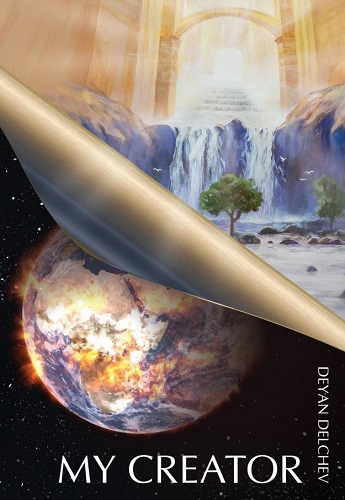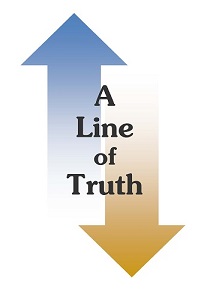True Eternity, Sempiternity, God and Time
I just came a across a really interesting Wikipedia article on the subject of eternity. The article is packed with very interesting information, so I thought I would share it with you.
The opening statement says a lot:
While in the popular mind, eternity often simply means existence for a limitless amount of time, many have used it to refer to a timeless existence altogether outside time. By contrast, infinite temporal existence is then called sempiternity. An eternal being exists outside time; by contrast, a sempiternal being exists throughout an infinite time. Sempiternity is also known as everlastingness.
There you have it. True eternity means existing outside of time. However, as that statement says, the popular use of the word "eternity" is actually the meaning of sempiternity, which means existing throughout an infinite amount of time. Here's another quote from the article:
Theists say that God is eternally existent. How this is understood depends on which definition of eternity is used. On one hand, God may exist in eternity, a timeless existence where categories of past, present, and future just do not apply. On the other hand, God will exist for or through eternity, or at all times, having already existed for an infinite amount of time and continuing to exist for an infinite amount of time. One other definition states that God exists outside the human concept of time, but also inside of time. The reasoning for this definition is that if God did not exist both outside time and inside time, God would not be able to interact with humans.
Most Adventists and Christians use eternity as the meaning of sempiternity, and, unfortunately, most people don't even think about these subjects at this level. Notice the emphasised words in that last quote. There are two main concepts at play here. One is that God exists in eternity which is a place, state, or dimension (whatever you want to call it) where time is of no effect. The other is that God exists for or through eternity, which means that He exists and is subject to time, but has always been existing in time.
Since the result of the latter view is that God is subject to time, that would suggest that either God created time and then placed Himself subject to it for eternity, or that time was before God. Both of these conclusions really, are completely absurd.
I believe that all the views presented in the last quote are wrong. I personally don't know how God is above and outside of time, I just know that He is above and outside of time. This is because we as humans can't fully understand eternity, which is a topic I'll get into later on in this article.
Augustine of Hippo wrote that time exists only within the created universe, so that God exists outside time; for God there is no past or future, but only an eternal present; this, of course, would require God to exist only outside the present universe. One need not believe in God in order to hold this concept of eternity...
The view presented here is certainly wrong, as it leads to an impersonal God. However, it raises a point. If God is the creator of the universe, and time and space are properties of the universe (as Einstein's theory of relativity would lead to), shouldn't God be above time and space?
Related to the notion of eternal existence is the concept of God as Creator, as a being completely independent of "everything else" that exists because God created everything else (as against panentheism). If this premise is true, then it follows that God is independent of both space and time, since these are properties of the universe. So according to this notion, God exists before time began, exists during all moments in time, and will continue to exist if somehow the universe and time itself were to cease to exist, which may present a problem as to how He could then influence events within the universe.
That quote from the article says exactly what I'm getting at. He created the universe, and time and space are properties of the universe, therefore by logical reason He should be independent of time and space. I believe that this view does not raise problems for how He could interact with the universe. If this were a problem, it would mean that God has created something but because He lives in a different paradigm He can't interact with His creation, which is absurd.
There are many places in the Bible where God refers to Himself as "I am." Exodus 3:14 is a good example. The term "I am" could lead to the conclusion that God just is and is not subject to anything.
Every good gift and every perfect gift is from above, and cometh down from the Father of lights, with whom is no variableness, neither shadow of turning. - James 1:17
Jesus Christ the same yesterday, and to day, and for ever. - Hebrews 13:8
These verses state that God stays the same and does not change. I especially want to focus on the last one, Hebrews 13:8. This verse brings in the concept of time, and I think it could be implying that as time goes by for us, God stays the same. This is for two main reasons, one is that His character is unchanging, and two is that He exists above and outside of time.
Switching gears, here's another quote from the Wikipedia article:
Whichever definition of eternity is understood, it is an understatement to say that humans cannot fully understand eternity, since it is either an infinite amount of time as we know it or something other than the time and space we know. For the infinite definition, there are parallels that give some notion of an infinity—of at least a potential infinity, or a series that begins and has not ended. A series of moments that has begun and not ended is, however, not potentially eternal by that definition. A series of moments that has begun and not ended cannot be eternal, because even if it were to continue for the rest of (infinite) time, there would still be time prior to the initial moment in the series. The series of moments could not ever exist for all eternity because no matter what happened during the series of moments, nothing would ever cause the series of moments to have existed since the beginning of "eternity", and thus could never achieve the status of eternal or even potentially eternal.
There is two points found in the statement that I would like to address. The first the fact that regardless of which definition for eternity we use (eternal or sempiternal), we cannot fully understand eternity. I'll come back to this in a moment. The second point is how it talks about how a series of moments that has begun and not ended is not eternal. This brings us to the whole debate about Christ being or not being eternal and therefore being or not being divine/God. If Christ being begotten of the Father actually had an impact, what would that mean? It would mean that both Christ and the Father are subject to time. The Father made the Son equal to Himself by His own authority. If Christ being begotten at "some time in eternity" invalidates Christ being divine as the Father is, who/what is in control? Time or God? Time of course. It would mean that time has the say over God!
Knowing the true definition of eternity, the phrase "some time in eternity" is just plain absurd. When you hit the word time, a big red flag comes up. There is no time in eternity! Eternity is not made up of time!
Besides, why does time have to make God and Christ equal? If it were time that made God and Christ equal, it would be yet another attack on God's authority, because God made His Son equal with Himself. It is their relationship and God's word that makes them equal.
Now, let's come back to first point made in that last quote. We can't understand eternity, it's above our minds. Focusing on the true definition of eternity, to the human mind, a life without time is impossible to fully imagine. It makes perfect sense that it should be this way. This is the Bible definition of the word "eternal":
From H5956; properly concealed, that is, the vanishing point; generally time out of mind (past or future), that is, (practically) eternity; frequentative adverbially (especially with prepositional prefix) always: - always (-s), ancient (time), any more, continuance, eternal.
It states that it means concealed, hidden, out of mind. This means it is above us and our mortal minds. The Bible says:
For my thoughts are not your thoughts, neither are your ways my ways, saith the LORD. - Isaiah 55:8
God does not operate on the same paradigm as we do. We cannot understand God fully, this ability was only given to the Son.
I want to raise another interesting point, but before I do, I'll just talk about a few details so that we're on the same page. What makes the Son equal with the Father? The most plain reason is that God said so. Looking through a more detailed view, it's because the Father gave the Son the ability to understand Himself as He understands the Son. It's their relationship that makes them equal. Secondly, what did Satan say about what he wanted to be/do? The Bible tells us:
For thou hast said in thine heart, I will ascend into heaven, I will exalt my throne above the stars of God: I will sit also upon the mount of the congregation, in the sides of the north: I will ascend above the heights of the clouds; I will be like the most High. - Isaiah 14:13-14
The key point there is "I will be like the most High." Satan wanted to be equal with God, and not under the Son. He was angry because he was not being let in on God's plans as was the Son.
On a similar note, when we subject God to time, and put Him in our little box, it makes Him more like us. This inevitably means the we can understand Him more fully. I think this is like Satan saying "I will be like the most High", we are bringing God closer to our level so that we can be more like Him. Of course in Adventist theories we don't go to the same level as Satan did, but I think it is of the same spirit, and this spirit, is deadly.
Ultimately it comes down to this. Is a creation above the creator? Is time above God? Are we above God? No. We have no right to place time above God, and no right to question His act of making the Son equal with Himself, as Lucifer did. Will we trust Him? Or not?
Footnotes
[1] If you haven't already gone and read it, I highly recommend you read the the Wikipedia article on eternity. It has a lot of interesting information in it, although I have included a lot of the article in here actually. Just note, it is presented in the normal Encyclopaedia way, it presents the subject from different views, and does not try to sway you one way or the other (for the most part anyway). Wikipedia is a great resource, search around on it and you'll find some valuable information.




